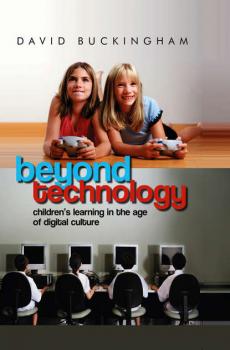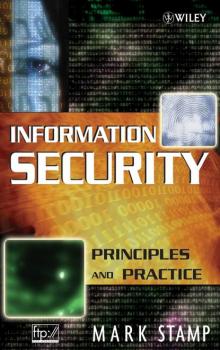Группа авторов
Список книг автора Группа авторовLearning Disability
This is an updated version of a comprehensive a resource for health professionals working with people (primarily adults) who have learning disabilities (intellectual disabilities). It will provide a comprehensive overview of the diverse approaches to treatment and management issues, as well as methods to help them achieve the rehabilitation aims – including the usage of non-healthcare facilities. Split into three sections, the book covers 1: Underlying theory; 2: Assessment; 3: Practical methods of physical treatment and management. Combines history and the theory underlying learning disability and its associated conditions; assessment, and practical physical treatment. Achieves carefully assessed aims through methods appropriate to the individual client. Funding suggestions for working in non-healthcare situations. Features a breadth of content that also appeals to non-physiotherapists.
Engineering Education
A synthesis of nearly 2,000 articles to help make engineers better educators While a significant body of knowledge has evolved in the field of engineering education over the years, much of the published information has been restricted to scholarly journals and has not found a broad audience. This publication rectifies that situation by reviewing the findings of nearly 2,000 scholarly articles to help engineers become better educators, devise more effective curricula, and be more effective leaders and advocates in curriculum and research development. The author's first objective is to provide an illustrative review of research and development in engineering education since 1960. His second objective is, with the examples given, to encourage the practice of classroom assessment and research, and his third objective is to promote the idea of curriculum leadership. The publication is divided into four main parts: Part I demonstrates how the underpinnings of education—history, philosophy, psychology, sociology—determine the aims and objectives of the curriculum and the curriculum's internal structure, which integrates assessment, content, teaching, and learning Part II focuses on the curriculum itself, considering such key issues as content organization, trends, and change. A chapter on interdisciplinary and integrated study and a chapter on project and problem-based models of curriculum are included Part III examines problem solving, creativity, and design Part IV delves into teaching, assessment, and evaluation, beginning with a chapter on the lecture, cooperative learning, and teamwork The book ends with a brief, insightful forecast of the future of engineering education. Because this is a practical tool and reference for engineers, each chapter is self-contained and may be read independently of the others. Unlike other works in engineering education, which are generally intended for educational researchers, this publication is written not only for researchers in the field of engineering education, but also for all engineers who teach. All readers acquire a host of practical skills and knowledge in the fields of learning, philosophy, sociology, and history as they specifically apply to the process of engineering curriculum improvement and evaluation.
Performance Evaluation
Performance Evaluation is a hands-on text for practitioners, researchers, educators, and students in how to use scientifically-based evaluations that are both rigorous and flexible. Author Ingrid Guerra-López, an internationally-known evaluation expert, introduces the foundations of evaluation and presents the most applicable models for the performance improvement field. Her book offers a wide variety of tools and techniques that have proven successful and is organized to illustrate evaluation in the context of continual performance improvement.
Beyond Technology
Beyond Technology offers a challenging new analysis of learning, young people and digital media. Disputing both utopian fantasies about the transformation of education and exaggerated fears about the corruption of childhood innocence, it offers a level-headed analysis of the impact of these new media on learning, drawing on a wide range of critical research. Buckingham argues that there is now a growing divide between the media-rich world of childrens lives outside school and their experiences of technology in the classroom. Bridging this divide, he suggests, will require more than superficial attempts to import technology into schools, or to combine education with digital entertainment. While debunking such fantasies of technological change, Buckingham also provides a constructive alternative, arguing that young people need to be equipped with a new form of digital literacy that is both critical and creative. Beyond Technology will be essential reading for all students of the media or education, as well as for teachers and other education professionals.
Managing Safety
What are accidents? Are they just statistics that your safety department sends to you monthly and which you glance over and ask yourself whether the safety professional you have employed is doing his job right? Aimed primarily at top and middle management, this book adopts the new approach to preventing serious incidents rather than minimal compliance with regulations. It takes you step-by-simple-step to show how accidents can be avoided with little effort and money, allowing you to reap the rewards such an injury-free culture brings: higher worker morale, better product quality, and maximum productivity. Plus the inner satisfaction of reaching a goal that is worth striving for, namely zero accidents.
Software Paradigms
Software Paradigms provides the first complete compilation of software paradigms commonly used to develop large software applications, with coverage ranging from discrete problems to full-scale applications. The book focuses on providing a structure for understanding a hierarchy of software development approaches, and showing the relationships between the different models. Coverage includes paradigms in design patterns, software components, software architectures, and frameworks. Chapters within each of these sections include design issues related to building and using the paradigm as well as numerous real world applications. A practical overview of the hierarchy of development paradigms, Software Paradigms is an excellent teaching tool for undergraduates and graduates, and a comprehensive and reliable reference for software engineers.
Being Virtual
Thanks to the Internet, it has never been so easy to become the person of your wildest dreams. Immersive 3D worlds such as Second Life and THERE.com provide an escape route from the ordinary, into a virtual world where you have the power to mould your life in any way you please. Forget about walking, wheelchair users can fly. Pensioners wipe away the pains of age, discovering youthful exuberance and making young friends once more. No wonder it has become harder than ever to honestly answer the question: who am I? In Being Virtual, Davey Winder looks at how an increasing number of us are living part-real, part-virtual lives, and how it affects who we are. He looks at the opportunities and dangers that a virtual identity offers us, how we juggle our real and online lives, and what happens when one spills over into the other… He uses his own personal experiences to bring the issues to life, and backs them up with the real-life stories of others and testimony from the experts. Along the way, he looks at some fascinating questions such as: Are you a virtual liar? What happens when our virtual and real worlds collide? Why will you talk to anyone online, but nobody on the train to work? Why do so many middle-aged men transform into teenage girls online? Is it possible to have any secrets in such a connected world? Being Virtual gives a glimpse into the future of human identity, and is a must-read for anyone who uses the Internet to enhance – or escape from – their 'ordinary' life. About the author Davey Winder has been a freelance journalist for 16 years, and is Contributing Editor of the best-selling IT magazine, PC Pro. He has picked up many awards including Technology Journalist of the Year and IT Security Journalist of the Year. A founder member of the Internet Society of England and author of more than 20 books, his blog can be found at: http://happygeeknewmedia.blogspot.com/
Security Engineering
The world has changed radically since the first edition of this book was published in 2001. Spammers, virus writers, phishermen, money launderers, and spies now trade busily with each other in a lively online criminal economy and as they specialize, they get better. In this indispensable, fully updated guide, Ross Anderson reveals how to build systems that stay dependable whether faced with error or malice. Here?s straight talk on critical topics such as technical engineering basics, types of attack, specialized protection mechanisms, security psychology, policy, and more.
Information Security
Your expert guide to information security As businesses and consumers become more dependent on complex multinational information systems, the need to understand and devise sound information security systems has never been greater. This title takes a practical approach to information security by focusing on real-world examples. While not sidestepping the theory, the emphasis is on developing the skills and knowledge that security and information technology students and professionals need to face their challenges. The book is organized around four major themes: * Cryptography: classic cryptosystems, symmetric key cryptography, public key cryptography, hash functions, random numbers, information hiding, and cryptanalysis * Access control: authentication and authorization, password-based security, ACLs and capabilities, multilevel and multilateral security, covert channels and inference control, BLP and Biba's models, firewalls, and intrusion detection systems * Protocols: simple authentication protocols, session keys, perfect forward secrecy, timestamps, SSL, IPSec, Kerberos, and GSM * Software: flaws and malware, buffer overflows, viruses and worms, software reverse engineering, digital rights management, secure software development, and operating systems security Additional features include numerous figures and tables to illustrate and clarify complex topics, as well as problems-ranging from basic to challenging-to help readers apply their newly developed skills. A solutions manual and a set of classroom-tested PowerPoint(r) slides will assist instructors in their course development. Students and professors in information technology, computer science, and engineering, and professionals working in the field will find this reference most useful to solve their information security issues. An Instructor's Manual presenting detailed solutions to all the problems in the book is available from the Wiley editorial department. An Instructor Support FTP site is also available.
Internet Security
Knowledge of number theory and abstract algebra are pre-requisites for any engineer designing a secure internet-based system. However, most of the books currently available on the subject are aimed at practitioners who just want to know how the various tools available on the market work and what level of security they impart. These books traditionally deal with the science and mathematics only in so far as they are necessary to understand how the tools work. Internet Security differs by its assertion that cryptography is the single most important technology for securing the Internet. To quote one reviewer «if every one of your communication partners were using a secure system based on encryption, viruses, worms and hackers would have a very hard time». This scenario does not reflect the reality of the Internet world as it currently stands. However, with security issues becoming more and more important internationally, engineers of the future will be required to design tougher, safer systems. Internet Security: * Offers an in-depth introduction to the relevant cryptographic principles, algorithms protocols – the nuts and bolts of creating a secure network * Links cryptographic principles to the technologies in use on the Internet, eg. PGP, S/MIME, IPsec, SSL TLS, Firewalls and SET (protecting credit card transactions) * Provides state-of-the-art analysis of the latest IETF standards plus summaries and explanations of RFC documents * Authored by a recognised expert in security Internet Security is the definitive text for graduate students on security and cryptography courses, and researchers in security and cryptography areas. It will prove to be invaluable to professionals engaged in the long-term development of secure systems.









